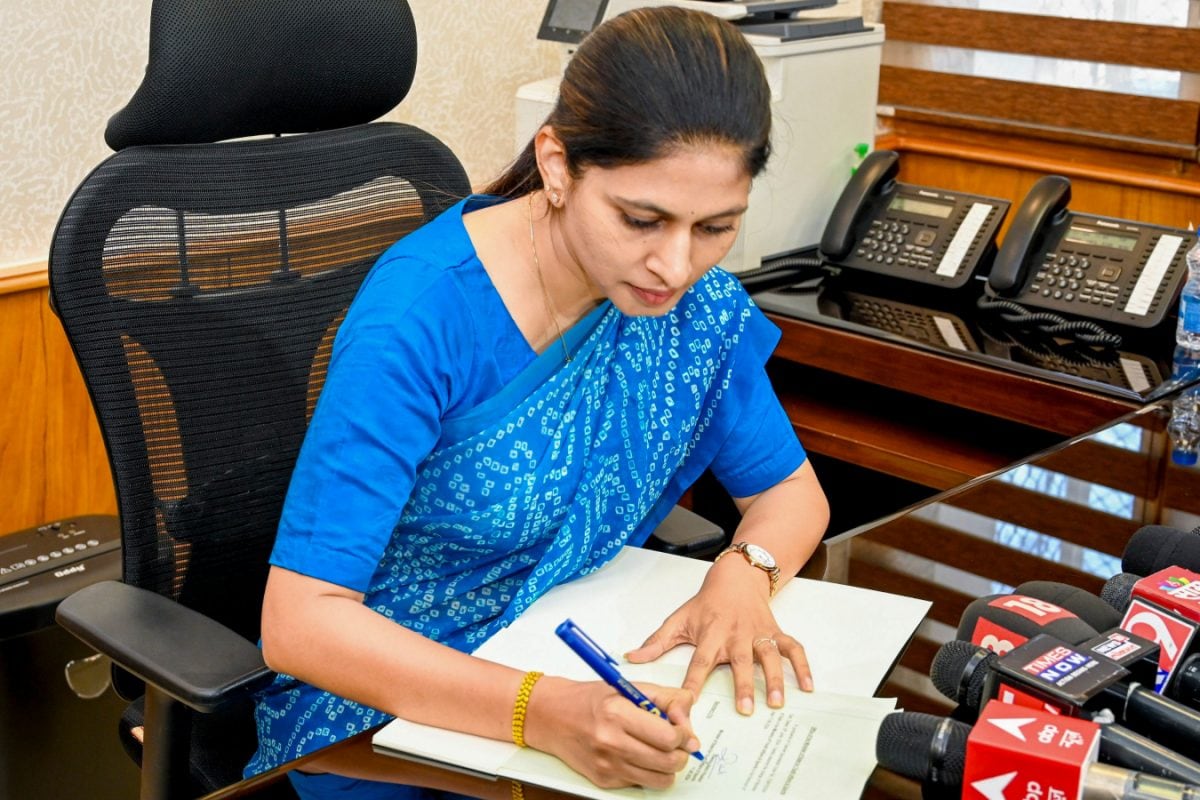

The possibility of India hosting the 2036 Summer Olympics is gaining momentum, with key figures emphasizing the significance of this endeavor for the nation's development and global standing. MoS Raksha Khadse has articulated that hosting the Olympics would be a powerful indicator of India's advancement on the world stage, highlighting the potential for economic growth, infrastructural development, and youth empowerment.
India's ambition to host the 2036 Olympics was formally declared by Prime Minister Narendra Modi at the 141st IOC Session in Mumbai. Following this declaration, the Indian Olympic Association (IOA) submitted a 'Letter of Intent' to the International Olympic Committee's (IOC) Future Host Commission in October 2024, marking a significant step in the bidding process. Currently, India is in the "continuous dialogue" phase with the IOC, which involves a feasibility study of the projects associated with the Games.
Ahmedabad, in Gujarat, has emerged as the frontrunner to potentially host the Games. The city is already undergoing significant infrastructure upgrades, with Home Minister Amit Shah announcing plans to construct ten large stadiums to support the Olympic bid. The Gujarat government is also actively involved in discussions with the Commonwealth Games Federation regarding India's separate bid to host the 2030 Commonwealth Games, also proposed for Gujarat. This event could serve as a crucial stepping stone, showcasing India's preparedness for the larger-scale Olympics. A high-level delegation, including IOA President P.T. Usha and senior officials, are scheduled to meet with the IOC in Lausanne from June 30 to July 2, 2025, to present progress on planning and infrastructure proposals and receive technical feedback.
Hosting the Olympics is projected to bring substantial economic benefits to India. Beyond the direct employment opportunities created by the construction of facilities and the organization of the Games, the event is expected to boost tourism and benefit ancillary industries like hospitality, retail, and transportation. The ICC Men's Cricket World Cup in India generated $1.39 billion, highlighting the potential economic impact of the Olympics. Moreover, the Games can drive infrastructural development, modernizing urban centers with improved public transport, housing, and sustainable energy systems, leaving a lasting legacy for residents. The construction of Olympic-standard facilities can create numerous jobs, while tourism revenue could surge.
The government has launched initiatives like the Khelo India scheme to revive the country's sporting culture and build a robust sports ecosystem. The scheme provides high-level training at the grassroots level, with a budget that has increased 2.5 times to ₹900 crore in 2024. Under this scheme, the government aims to build 1,000 Khelo India centers in 679 districts and 296 sports academies. Also, there are plans to establish 10 Olympic training centers across the country, focusing on different sporting disciplines and bringing together 150 athletes selected from various national games.
India's bid faces competition from other nations, including Indonesia, Saudi Arabia, Germany, South Korea, Hungary, and Qatar. Moreover, regional tensions could affect India's Olympic hopes. However, Sebastian Coe, a contender for the IOC president's post, believes India has a "strong case" in its bid but acknowledges the competition will be tough.
If India secures the hosting rights, it plans to promote sports like yoga, kho kho, kabaddi, chess, T20 cricket, and squash. With strategic planning, sustainable practices, and a clear focus on long-term benefits, hosting the 2036 Olympics could mark a significant milestone in India's journey toward becoming a global superpower.